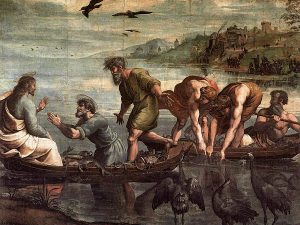Graduate Certificate in New Testament Mission
It can be difficult to know where to begin in finding a program in New Testament studies, and whether a given program suits your purposes. The Certificate in New Testament Mission bridges the gap between the first century and what God is calling you to do today in the 21st century.
Our Certificate in New Testament Mission guarantees three things: an adherence to the principles and practice of the critical study of the New Testament as an academic discipline, a precise focus on mission theory and practice as witnessed in the New Testament, and practical advice on applying and translating the wisdom of the first apostles and evangelists to your own missional context. Taught by faculty with an international background in teaching the New Testament at all levels in a number of different cultural contexts, and with both a passion and experience in preparing students for ministry and mission, the certificate program offers a quick and effective way to grow your academic, missional, and practical skills.
The certificate consists of 18 credit hours. It may be completed in as little as 10 months (during 5 eight week academic terms) or may be spread out over 24 months.
REQUIRED COURSES: 18 HOURS
Did the New Testament give rise to mission or did mission give rise to the New Testament? Many Christians are inclined to think it is the former but the New Testament itself is a product of mission itself. With this in mind, we begin this course by clarifying some key terms (e.g. missional, hermeneutic) before turning to the New Testament documents. Through our study of these and the assessments given the student learns how to approach the New Testament from a missional perspective that appreciates it rootedness and relevance in the first-century cultures, its complex story-like unity with the Old Testament, and its multifaceted witness to the climactic nature of Jesus and his work. Read more
Do the Four Gospel’s contradict or complement one another in their presentation of the mission of Jesus? This course assesses this question by examining the Gospels’ coherency (One Jesus) and diversity (Four Portraits) of the person and missional message of Jesus. A richly textured portrayal of Jesus’s mission and practices are in evidence in the Four Gospels via Matthews’s messianic focus, Mark’s deep concern for Gentiles, Luke’s attention to the marginalized, and John’s very different but unique and complementary Christological slant. Read more
Covers missionary behavior in the book of Acts and other relevant New Testament texts that overlap with the chronology and content of the material recorded in the sequel to Luke’s Gospel. Students will engage these biblical patterns for the sake of discerning how the Church ought to emulate the models portrayed in these texts, but also how to engage presently in faithful improvisation for the sake of an ever-changing world. The course will be structured by readings, lectures, discussion forums, group projects, and also an argumentative essay. Read more
Paul is an ancient personality who must first be rooted in the social and historical context of the first-century world in order to understand how he went about his work. Some of the more important theological expressions of Paul (e.g., justification) are examined from a missional perspective, followed by concentrating on Paul’s missional strategy where we investigate Paul’s preference to work alongside a variety of co-workers—male and female—in different locations and at various times as he fulfilled his mandate of apostle to the Gentiles. While we consider these different issues, we also have an eye on major contemporary questions in Pauline studies, including whether Paul expected his communities to be centripetally or centrifugally focused in their missional orientation. Read more
What is God’s will for Christians as they live in the interim between Christ’s first and second comings? In this course, we grapple with the Christians’ mission in the world by analyzing the particular historical, and social contexts of the time when persecution was endemic and figures/powers were antagonistic to the Christian faith and its followers. Using a number of assessments, students will be exposed to the deep moral and philosophical issues regarding suffering/persecution and why God should permit them, and the need for an appropriate Christian response to persevere and hold on to an unshakable faith in the God who is in control. Read more
Provides a framework for students to be able to analyze and critique the larger metanarrative of the mission of God. Is God’s mission restricted only to the forgiveness of sins or is it more far-reaching? If it is the latter, what could that look like and mean? Using the theme of restoration and drawing from a variety of sources, the student is given the necessary tools to be able to assess the theological, philosophical, social, and moral implications of the out-workings of God’s purposes and plans for the renewal of the world. Read more

